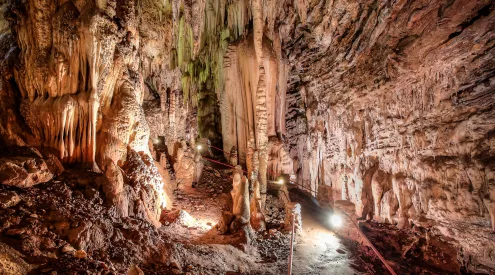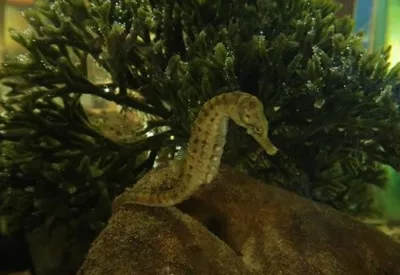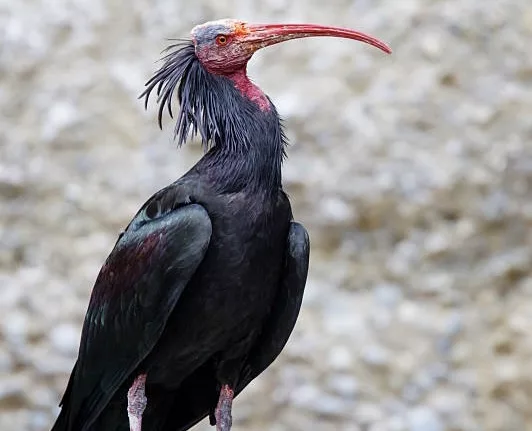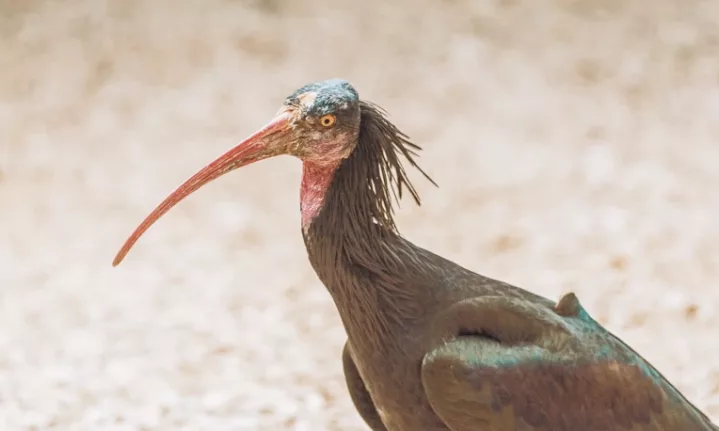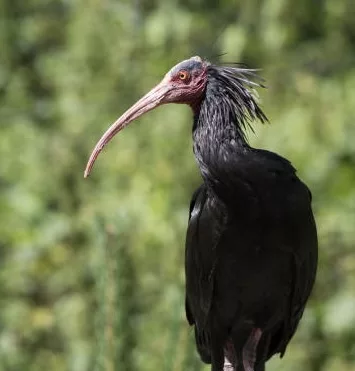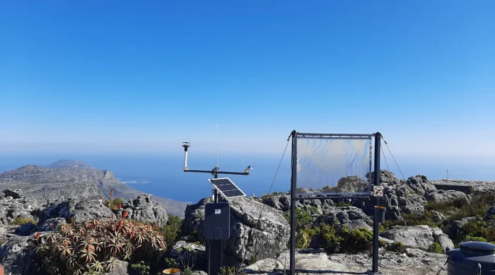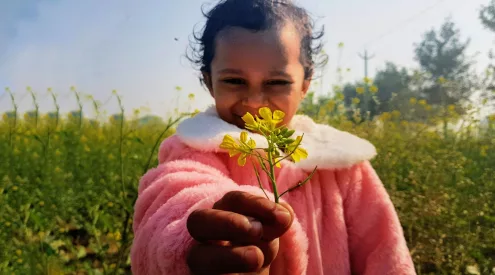According to BBC, determined scientists embarked on a daring mission to save the critically endangered Northern bald ibis from the brink of extinction.
By teaching these rare birds a new migration route, they aim to protect the species from the devastating impacts of our polluted climate.
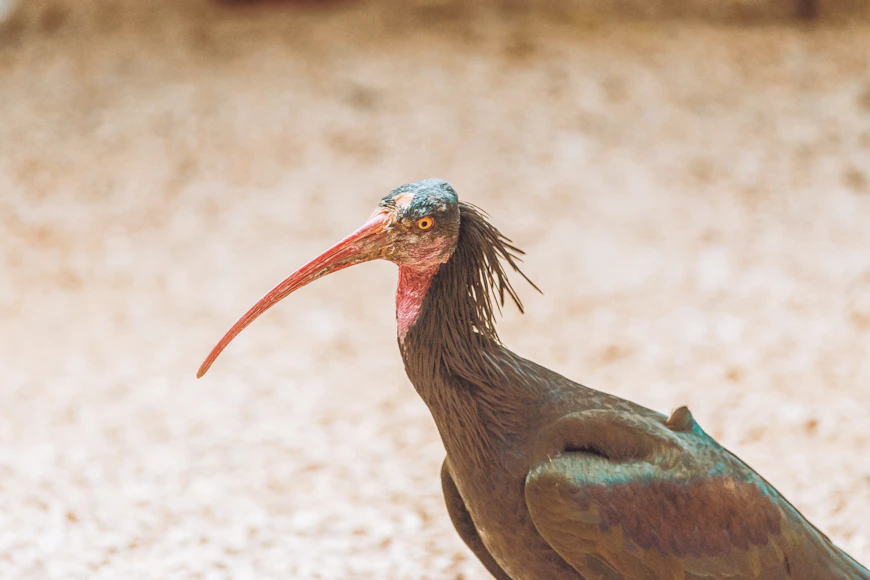
Northern bald ibis. (Picture: Sourced / Stanislav Ferrao)
As per The Cool Down, biologists Barbara Steininger and Helena Wehner took on the role of foster mothers to 35 newly hatched ibis chicks, bonding with them day and night.
Their hope was that the young ibises would trust them enough to follow their ultralight aircraft on an unprecedented 1,400-mile journey to a new wintering ground.
Atmospheric pollution has disrupted the bald ibis’ centuries-old migration path over the Alps. Delayed departures due to warming autumns mean the birds reach impassable frozen peaks. Moreover, dozens have been stranded in snowy mountains, facing likely starvation.
Steininger and Wehner’s innovative solution charted a new course through lowland Germany, France, and Spain. Here, the ibises can soar over hills and plains, aided by uplifting thermals and reaching a safe haven.
Along the way, Wehner found inspiration in the sight of hundreds of storks riding thermal uplifts along the same route.
‘We really felt part of this worldwide migration, because we were on a route where many, many birds migrate,’ she reflected. ‘And we were crossing our fingers for all of them, and willing them to succeed.’
Why go to such extraordinary lengths for one bird species? Well, the Northern bald ibis is an “umbrella species” — protecting it helps many other animals that share its habitat. The team’s work with power companies to insulate lines also prevents electrocutions of storks, eagles, and more.
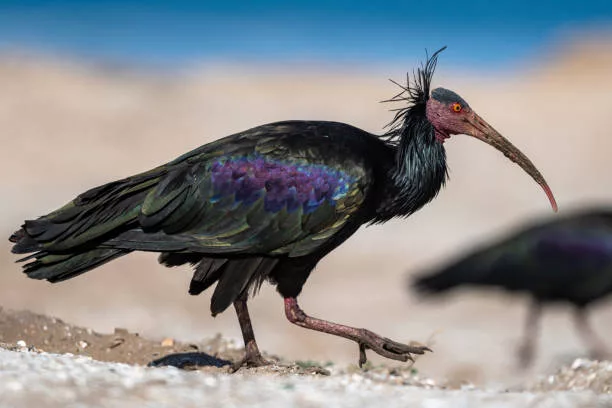
Northern Bald Ibis (Picture: iStock / Szymon Bartosz)
Throughout the six-week migration, the birds astounded their human companions. Gliding in graceful V-formations and joyfully swooping along coastlines. Even a run-in with an eagle couldn’t deter them.
In the end, most of the ibises safely reached their Spanish sanctuary. A bittersweet farewell ensued as Steininger and Wehner let their charges fly free. The hope is that these birds will lead their own migrations back to breeding grounds, rejoining another reintroduced ibis population.
‘Whenever we have a chance to save a species, we should use it. It offers a glimmer of hope’ affirms Wehner. Their daring mission proves how innovative thinking and dedication can help vulnerable species navigate a changing world.
Steininger further added that forging such a unique bond with the birds is special: ‘Perhaps we could all benefit from considering the planet from other species’ perspectives — and taking action to protect the wondrous creatures with whom we share this Earth’.
Follow us on social media for more travel news, inspiration, and guides. You can also tag us to be featured.
TikTok | Instagram | Facebook | Twitter




